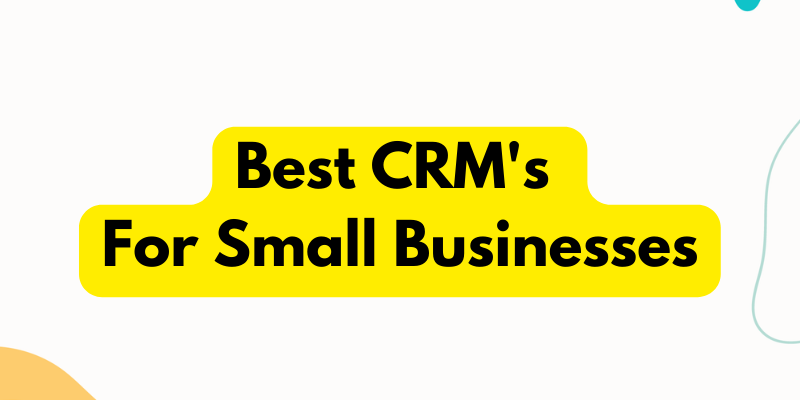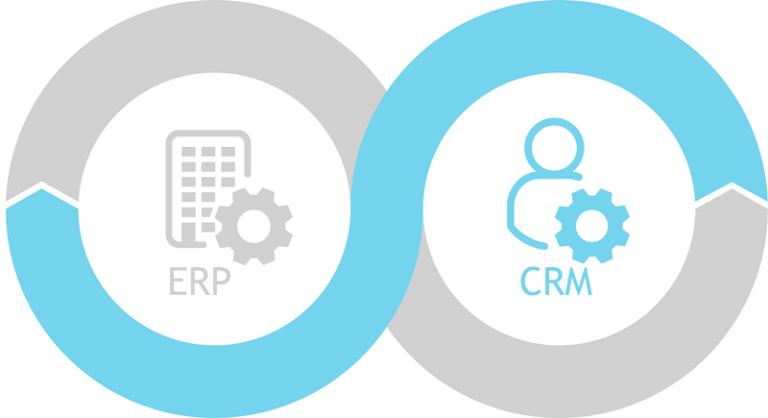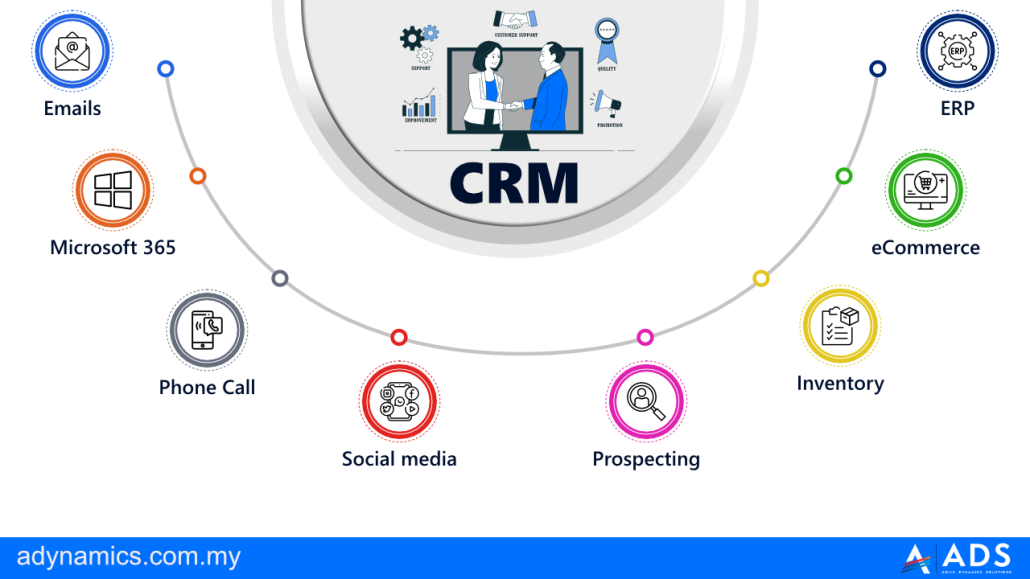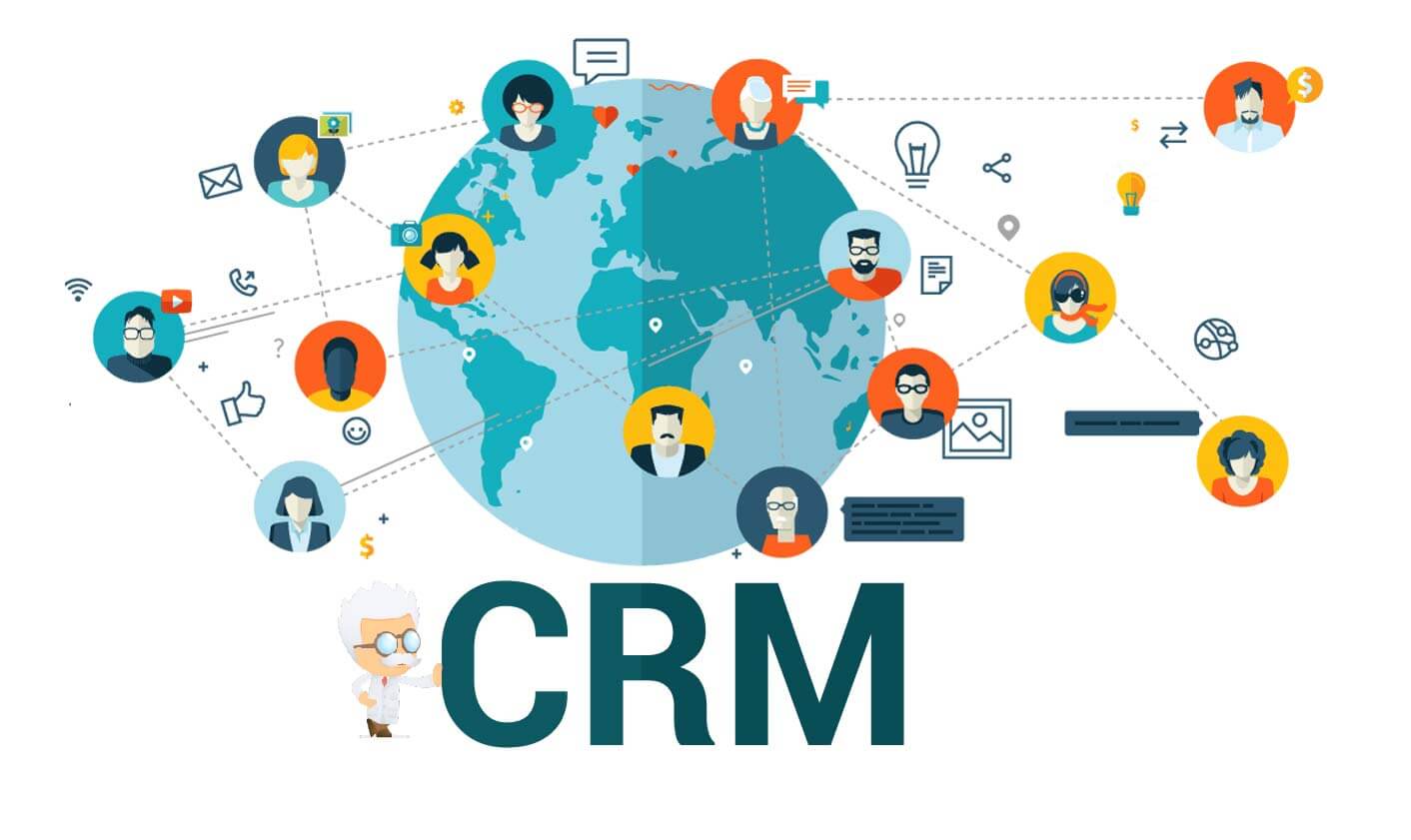
Introduction: Why Small Businesses Need CRM for Marketing
Running a small business is a whirlwind of activity, isn’t it? You’re juggling product development, customer service, finances, and, of course, marketing. In this digital age, marketing is no longer just about billboards and newspaper ads. It’s about understanding your customers, anticipating their needs, and building lasting relationships. That’s where Customer Relationship Management (CRM) systems come in – and they’re not just for the big guys anymore.
For small businesses, CRM is a game-changer. It’s a central hub where you can store, organize, and analyze all your customer data. This includes contact information, purchase history, communication logs, and even social media interactions. With this treasure trove of information at your fingertips, you can personalize your marketing efforts, improve customer satisfaction, and ultimately, boost your bottom line. Forget spreadsheets and scattered notes – CRM offers a streamlined, efficient approach to managing your customer relationships.
This comprehensive guide will delve into the world of CRM for small business marketing. We’ll explore the benefits, the different types of CRM systems available, how to choose the right one for your needs, and how to implement it successfully. Get ready to transform your marketing strategy and build a thriving business!
The Core Benefits of CRM for Small Business Marketing
Why bother with CRM? The advantages are numerous and can significantly impact your business’s success. Let’s break down the key benefits:
1. Enhanced Customer Understanding
Imagine knowing exactly what your customers want, when they want it, and how they prefer to receive it. CRM makes this possible. By centralizing customer data, you gain a 360-degree view of each individual. You can track their purchase history, understand their preferences, and identify their pain points. This deeper understanding allows you to tailor your marketing messages, product offerings, and customer service to meet their specific needs.
2. Improved Lead Generation and Management
CRM systems are powerful tools for lead generation. They can help you track leads from various sources, such as website forms, social media, and email campaigns. You can then nurture these leads through the sales funnel, sending targeted content and offers to move them closer to a purchase. CRM also helps you prioritize leads based on their potential value, ensuring that your sales team focuses on the most promising prospects.
3. Increased Sales Efficiency
CRM streamlines the sales process, making your sales team more efficient and productive. It automates tasks such as data entry, follow-up emails, and appointment scheduling. This frees up your sales team to focus on building relationships with customers and closing deals. CRM also provides sales teams with the information they need to close deals faster, such as customer history, contact details, and previous interactions.
4. Personalized Marketing Campaigns
Generic, one-size-fits-all marketing is a thing of the past. CRM empowers you to create personalized marketing campaigns that resonate with individual customers. By segmenting your audience based on demographics, behavior, and purchase history, you can deliver targeted messages that are more likely to convert. This personalization leads to higher engagement rates, improved conversion rates, and increased revenue.
5. Improved Customer Retention
Happy customers are repeat customers. CRM helps you keep your customers happy by providing excellent customer service and building strong relationships. You can track customer interactions, resolve issues quickly, and proactively offer support. By showing your customers that you care, you can increase their loyalty and reduce churn. Customer retention is significantly more cost-effective than acquiring new customers, making it a crucial aspect of any successful business.
6. Data-Driven Decision Making
CRM systems provide valuable data and insights that can inform your business decisions. You can track key performance indicators (KPIs) such as sales revenue, customer acquisition cost, and customer lifetime value. This data allows you to identify trends, measure the effectiveness of your marketing campaigns, and make data-driven decisions that drive growth.
Types of CRM Systems for Small Businesses
Choosing the right CRM system is crucial for your success. Here’s a breakdown of the different types available:
1. Cloud-Based CRM (SaaS)
Cloud-based CRM systems are hosted on the vendor’s servers and accessed over the internet. This is the most popular option for small businesses due to its affordability, ease of use, and scalability. You don’t need to install any software or manage any hardware. Updates and maintenance are handled by the vendor. Examples include Salesforce Essentials, HubSpot CRM, and Zoho CRM.
Pros:
- Cost-effective
- Easy to implement and use
- Scalable
- Accessible from anywhere
- Automatic updates and maintenance
Cons:
- Requires an internet connection
- Data security concerns (though most providers have robust security measures)
- Less customization options compared to on-premise systems
2. On-Premise CRM
On-premise CRM systems are installed on your own servers and managed by your IT team. This option offers more control over your data and customization options. However, it requires a significant upfront investment in hardware, software, and IT support. Examples include Microsoft Dynamics 365 and SugarCRM.
Pros:
- Greater control over data
- More customization options
- No reliance on an internet connection (once installed)
Cons:
- Expensive to implement and maintain
- Requires IT expertise
- Less scalable
3. Open-Source CRM
Open-source CRM systems are available for free and can be customized to your specific needs. They often require technical expertise to set up and maintain. Examples include SuiteCRM and vTiger CRM.
Pros:
- Free to use
- Highly customizable
- Large community support
Cons:
- Requires technical expertise
- Can be complex to set up and maintain
- May lack features compared to paid options
4. Industry-Specific CRM
Some CRM systems are designed for specific industries, such as real estate, healthcare, or manufacturing. These systems often come with pre-built features and workflows tailored to the unique needs of that industry.
Pros:
- Industry-specific features
- Pre-built workflows
- Can be easier to implement
Cons:
- May be more expensive
- Less flexibility if your needs evolve
Choosing the Right CRM for Your Small Business
Selecting the right CRM system is a critical decision. Here’s a step-by-step guide to help you make the best choice:
1. Define Your Needs and Goals
Before you start looking at CRM systems, take the time to define your specific needs and goals. What do you want to achieve with CRM? What are your biggest pain points? What features are essential? Consider the following:
- Sales Process: How do you currently manage leads and sales? What steps can be automated?
- Marketing Automation: Do you need to automate email campaigns, social media posts, or other marketing activities?
- Customer Service: Do you need to track customer inquiries, manage support tickets, or provide self-service options?
- Reporting and Analytics: What KPIs do you need to track? What reports will help you make better decisions?
- Budget: How much are you willing to spend on a CRM system?
- Team Size: How many users will need access to the CRM?
2. Research and Compare CRM Systems
Once you have a clear understanding of your needs, start researching different CRM systems. Consider the following factors:
- Features: Does the CRM offer the features you need?
- Ease of Use: Is the system intuitive and easy to learn?
- Integration: Does the CRM integrate with your existing tools, such as email marketing platforms, accounting software, and social media channels?
- Scalability: Can the CRM grow with your business?
- Pricing: Is the pricing model affordable and transparent?
- Customer Support: Does the vendor offer good customer support?
- Reviews and Ratings: What do other users say about the CRM?
Some popular CRM systems for small businesses include:
- HubSpot CRM: Free, user-friendly, and integrates with HubSpot’s marketing, sales, and service hubs.
- Zoho CRM: Affordable, feature-rich, and offers a wide range of integrations.
- Salesforce Essentials: A scaled-down version of Salesforce, designed for small businesses.
- Pipedrive: Focused on sales pipeline management and designed for small sales teams.
- Freshsales: A sales-focused CRM with built-in phone, email, and chat features.
3. Request Demos and Free Trials
Once you’ve narrowed down your choices, request demos and free trials of the CRM systems you’re considering. This will give you a hands-on experience and allow you to see how the system works. Pay attention to the following:
- User Interface: Is the interface clean, intuitive, and easy to navigate?
- Features: Do the features meet your needs?
- Performance: Does the system run smoothly and quickly?
- Support: Is the vendor responsive and helpful?
4. Consider Your Budget and Resources
CRM systems vary in price, from free to several hundred dollars per user per month. Consider your budget and your resources when making your decision. Factor in the cost of the CRM system itself, as well as the cost of implementation, training, and ongoing support. Also, consider the time and resources you’ll need to dedicate to implementing and managing the CRM system.
5. Choose the Right CRM for Your Business
Based on your research, demos, and budget, choose the CRM system that best meets your needs. Consider the long-term benefits and the potential for growth. Make sure the system is user-friendly, scalable, and integrates with your existing tools. The right CRM will be a valuable asset to your business, helping you improve customer relationships, increase sales, and drive growth.
Implementing Your CRM System: A Step-by-Step Guide
Choosing a CRM is only the first step. Successful implementation is crucial to realize the full benefits. Here’s a step-by-step guide to help you implement your CRM effectively:
1. Plan Your Implementation
Before you start, create a detailed implementation plan. This plan should include:
- Project Goals: What do you want to achieve with the implementation?
- Timeline: When do you want to launch the CRM?
- Team: Who will be responsible for the implementation?
- Data Migration: How will you migrate your existing data to the new CRM?
- Training: How will you train your team on the new system?
- Budget: What is your budget for the implementation?
2. Data Migration
Migrating your data from your existing systems to your new CRM can be a complex process. It’s crucial to plan this step carefully. Consider the following:
- Data Cleansing: Clean up your data before migrating it to the CRM. This includes removing duplicates, correcting errors, and standardizing formats.
- Data Mapping: Map your existing data fields to the corresponding fields in the new CRM.
- Data Import: Import your data into the CRM. Most CRM systems offer import tools to simplify this process.
- Data Verification: Verify that your data has been imported correctly.
3. Customize Your CRM
Most CRM systems offer customization options to tailor the system to your specific needs. Customize your CRM by:
- Adding Custom Fields: Add custom fields to store data that is specific to your business.
- Creating Custom Workflows: Automate tasks and processes using workflows.
- Configuring Integrations: Integrate your CRM with your other tools, such as email marketing platforms, accounting software, and social media channels.
- Setting up Reports and Dashboards: Create reports and dashboards to track your key performance indicators (KPIs).
4. Train Your Team
Training your team on the new CRM system is essential for successful adoption. Provide comprehensive training that covers all aspects of the system. Consider the following:
- Training Materials: Create training materials, such as user manuals, videos, and cheat sheets.
- Training Sessions: Conduct training sessions for all users.
- Hands-on Practice: Provide opportunities for users to practice using the system.
- Ongoing Support: Offer ongoing support to help users with any questions or issues.
5. Monitor and Refine
Once your CRM is live, monitor its performance and make adjustments as needed. Track your KPIs and identify areas for improvement. Continuously refine your CRM to optimize its effectiveness. Consider the following:
- User Adoption: Monitor user adoption rates and identify any challenges.
- Data Accuracy: Ensure that your data is accurate and up-to-date.
- Process Optimization: Optimize your business processes to improve efficiency.
- Regular Review: Regularly review your CRM to ensure that it still meets your needs.
Best Practices for CRM Marketing in Small Businesses
Once your CRM is up and running, it’s time to put it to work for your marketing efforts. Here are some best practices for CRM marketing in small businesses:
1. Segment Your Audience
Don’t treat all your customers the same. Segment your audience based on demographics, behavior, purchase history, and other relevant factors. This allows you to deliver targeted messages that are more likely to resonate with each segment.
2. Personalize Your Communications
Use the data in your CRM to personalize your communications. Address customers by their name, reference their past purchases, and tailor your messages to their specific interests. This shows that you value them as individuals and builds stronger relationships.
3. Automate Your Marketing Campaigns
Use your CRM to automate your marketing campaigns. Automate email sequences, social media posts, and other marketing activities to save time and improve efficiency. Automation allows you to nurture leads, engage with customers, and drive conversions without manual effort.
4. Track Your Results
Track the results of your marketing campaigns. Use your CRM’s reporting and analytics features to measure your key performance indicators (KPIs). This will help you identify what’s working and what’s not, allowing you to optimize your campaigns and improve your ROI.
5. Integrate CRM with Other Marketing Tools
Integrate your CRM with your other marketing tools, such as email marketing platforms, social media management tools, and website analytics platforms. This will allow you to streamline your marketing efforts and gain a more comprehensive view of your customer journey.
6. Use CRM for Lead Scoring
Implement lead scoring to prioritize your leads. Assign points to leads based on their behavior, demographics, and engagement with your marketing materials. This will help your sales team focus on the most promising prospects and close deals faster.
7. Leverage CRM for Customer Service
Use your CRM to provide excellent customer service. Track customer inquiries, manage support tickets, and proactively offer support. By providing exceptional customer service, you can increase customer loyalty and reduce churn.
8. Regularly Update Your Data
Keep your CRM data accurate and up-to-date. Regularly update customer contact information, purchase history, and other relevant data. This will ensure that your marketing campaigns are targeted and effective.
CRM Marketing Examples for Small Businesses
Let’s look at some concrete examples of how small businesses can use CRM for marketing:
1. E-commerce Business
An e-commerce business can use CRM to track customer purchase history, identify abandoned carts, and send targeted email campaigns. For example, they can send an email to customers who abandoned their cart, offering a discount to encourage them to complete their purchase. They can also send personalized product recommendations based on a customer’s purchase history.
2. Local Restaurant
A local restaurant can use CRM to collect customer information, track customer preferences, and send personalized promotions. They can send birthday emails with a special offer, or notify customers of new menu items based on their dining history. They can also use CRM to manage reservations and track customer feedback.
3. Consulting Firm
A consulting firm can use CRM to manage leads, track sales opportunities, and nurture client relationships. They can use CRM to track the progress of each lead through the sales funnel, send targeted content to educate prospects, and schedule follow-up calls. They can also use CRM to manage client projects and track client feedback.
4. Retail Store
A retail store can use CRM to track customer purchase history, manage loyalty programs, and send targeted promotions. They can send exclusive offers to loyalty program members, notify customers of sales and promotions, and track customer preferences to personalize their shopping experience. They can also use CRM to manage customer feedback and resolve any issues.
Common Mistakes to Avoid When Implementing CRM
Even with careful planning, mistakes can happen. Here are some common pitfalls to avoid when implementing a CRM system:
1. Lack of Planning
Failing to plan is planning to fail. A poorly planned implementation can lead to wasted time, money, and frustration. Take the time to define your needs, goals, and implementation plan before you start.
2. Not Involving Your Team
CRM is a team effort. Don’t implement a CRM system without involving your team. Get their input, address their concerns, and provide them with adequate training. If your team doesn’t buy in, the CRM implementation will likely fail.
3. Poor Data Quality
Garbage in, garbage out. Poor data quality can undermine the effectiveness of your CRM system. Clean up your data before migrating it to the CRM, and establish procedures for maintaining data accuracy.
4. Over-Customization
Resist the temptation to over-customize your CRM system. Customization can be time-consuming and expensive. Start with the core features and add customizations only when necessary.
5. Neglecting Training
Don’t underestimate the importance of training. Provide comprehensive training to your team, and offer ongoing support. Without proper training, your team won’t be able to use the CRM effectively.
6. Not Measuring Results
Don’t implement a CRM system without measuring your results. Track your KPIs and identify areas for improvement. If you’re not measuring your results, you won’t know if your CRM implementation is successful.
7. Ignoring Customer Feedback
CRM is all about the customer, so it’s important to pay attention to their feedback. Use your CRM to collect customer feedback and address any issues. By listening to your customers, you can improve your customer service and build stronger relationships.
The Future of CRM for Small Business Marketing
CRM technology is constantly evolving, and the future holds even more exciting possibilities for small businesses. Here are some trends to watch:
1. Artificial Intelligence (AI)
AI is already transforming CRM, and its impact will only grow in the future. AI can automate tasks, provide insights, and personalize customer experiences. Expect to see more AI-powered features in CRM systems, such as predictive analytics, chatbots, and automated email marketing.
2. Mobile CRM
Mobile CRM is becoming increasingly important as businesses become more mobile. Mobile CRM allows you to access your CRM data from anywhere, on any device. This allows sales teams to stay connected with customers and manage their sales pipeline on the go.
3. Integration with Other Tools
CRM systems will continue to integrate with other tools, such as marketing automation platforms, social media management tools, and e-commerce platforms. This integration will allow you to streamline your marketing efforts and gain a more comprehensive view of your customer journey.
4. Focus on Customer Experience
The focus on customer experience will continue to grow. CRM systems will be designed to provide a seamless and personalized customer experience across all touchpoints. This includes personalized website experiences, targeted marketing campaigns, and proactive customer service.
5. Data Privacy and Security
Data privacy and security will continue to be a top priority. CRM systems will need to comply with data privacy regulations, such as GDPR and CCPA. Expect to see more robust security features and data encryption to protect customer data.
Conclusion: Embracing CRM for Small Business Success
In today’s competitive landscape, CRM is no longer a luxury; it’s a necessity. For small businesses, CRM offers a powerful way to understand customers, personalize marketing efforts, and build lasting relationships. By choosing the right CRM system, implementing it effectively, and following best practices, you can transform your marketing strategy and drive significant growth.
So, take the leap! Explore the world of CRM and discover how it can empower your small business to thrive. Start by defining your needs, researching your options, and creating a solid implementation plan. With the right CRM in place, you’ll be well on your way to building a loyal customer base, increasing sales, and achieving long-term success. The future of your marketing is in your hands – and it starts with CRM.




